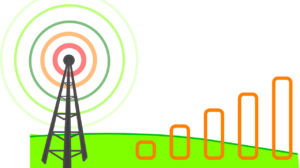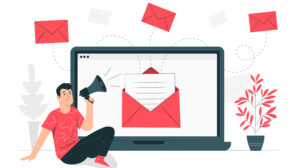There is not a single digital marketing mechanism as old and powerful as email newsletters. Marketers have created email campaigns for almost four decades and the number of users just keeps growing year after year. According to reports, almost four billion people use email worldwide.
Email marketing strategy can help you reach almost two-thirds of the global population, but it’s not the only benefit of email campaigns. On the contrary, digital mails are easy to administer, cost-effective, highly targeted, and measurable.
But if you really want to enjoy all the privileges of email marketing, you have to learn its basics. We are here to help you with that, so keep reading to learn the ABC’s of email marketing campaigns.
1. Grow Your Fan Base
The most important rule of email marketing is to grow your subscriber list and attract a lot of verified leads. The general rule of thumb is that more subscribers guarantee better ROI, but it all depends on the nature of your business. What is important is to create amazing website content and give your audience a reason to subscribe to your newsletters.
2. Write Attractive Subject Lines
Subject lines usually play a decisive role when it comes to opening or ignoring emails. After all, a typical user wants to see an attractive title that evokes curiosity and drives additional engagement.
Years of experience convinced us that the top-performing subject lines usually contain humorous remarks, emojis, surprising statements, or numbers. For instance, studies show that almost 60% of brands using emojis in their email subject lines had a higher open rate.
Your task is to do the homework, study user behavior, get creative, and write subject lines that perfectly align with the interests of the target audience.
3. Mind the Copywriting
A compelling subject line is not worth much without the corresponding email copy. You need to fulfill subscribers’ expectations and deliver as promised in the headline. Jake Gardner, a content creator, shares the secrets of quality email copywriting:
- The best email copies are short, direct, and concise
- Write small paragraphs and use enough whitespace
- Make a logical structure with intros, bodies, and conclusions
- Follow the overall brand style by keeping it funny, informative, educational, etc.
4. Segment and Personalize
Another important rule of email marketing is to divide subscribers into segments based on their personal traits. You can do it following a number of different principles:
- Segment by content affinities
- Segment by age, gender, or location
- Segment by sales funnel positions
There are many other ways to do it, but you get a general idea. Now, one more tactic is to personalize emails and make your messages more appealing. Addressing people by their names is usually enough to break the ice and turn average subscribers into loyal followers.
5. Use Responsive Templates
You probably know that the vast majority of users check emails on their smartphones, but do you know that messages being displayed incorrectly on mobile may be deleted within three seconds? It’s just the way things work these days – users demand full service and want you to indulge them 100%. For this reason, it is essential to use responsive email templates and send messages that can display properly on all sorts of screens and devices.
6. Stay Consistent
Consistency plays a big role in email marketing because it prevents subscribers from forgetting your business. The key objective here is to find an appropriate rhythm as you have to keep reminding users of your brand without looking too pushy. We believe that the best way to do so is by sending a new email newsletter once a week. This is more than enough to keep subscribers engaged and make them anticipate and expect new content week after week.
7. Add a CTA
Email marketing has a very special purpose and that is to make the target audience interested and engaged. This is, of course, not possible if you don’t add a call to action (CTA) and tell your subscribers what to do after reading a newsletter.
A CTA must be large enough and clearly visible, inviting the audience to make a move that perfectly corresponds to the content you have presented. But there is one more thing we need to highlight here and that is to create only one CTA per newsletter. Multiple CTAs will only confuse subscribers, so do not overwhelm them with more than one suggestion.
8. Proofreading Is Mandatory
Marketers who neglect proofreading will jeopardize professional credibility sooner or later. You cannot afford not to edit and proofread every subject line, CTA, and email copy because it’s the only way to find and eliminate spelling and grammar mistakes. If you don’t want to do it manually, we suggest using the following tools:
- Grammarly: Millions of people use Grammarly to check their texts quickly and effortlessly.
- Hemingway: The Hemingway app will not only proofread the document but also give you valuable suggestions related to the style of writing.
9. Allow Users to Unsubscribe
No matter how great and amusing your newsletters might be, some users will decide to unsubscribe. You can’t do anything to prevent it, so make sure to add the unsubscribe button to each of your email messages. Place it on the bottom of the message, but make it visible and easy to reach.
Conclusion
Email messages represent the most frequently used method of business communication that serves billions of people globally. However, it can fulfill your professional goals only if you are able to follow the state of the art principles of email communication. We showed you the ABC’s of email marketing, so do your best to use them and launch some highly efficient campaigns!





